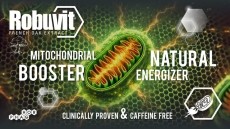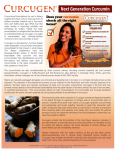Women want to know more about nutrition for menopause
women want their doctors to inform them about non-medicinal options
for relieving menopausal symptoms.
The agribusiness giant has been propping up marketing for its Novasoy branded soy isoflavones by means of an education campaign geared at consumers and the healthcare sector on the potential benefits of the ingredient for a common symptom of menopause - hot flashes.
Consumer interest in supplement or non-medicinal support for menopause is likely related to research and negative publicity on hormone replacement therapy (HRT).
As such, there is more room for the manufacturers of food compounds with such applications to fill the gap.
"This research shows that women's expectations are changing ," said Liza Pepple, product manager at ADM Natural Health & Nutrition.
"
Women are looking for their healthcare professionals to be as educated about natural alternatives for treating menopausal symptoms as they are about other options."
Once the standard therapy for menopausal symptoms in the US, HRT became the center of controversy in July 2002 when a National Institutes of Health study showed that taking hormone replacement therapy could increase the risk of heart attack, stroke or breast cancer.
In July 2005 the International Agency for Research on Cancer, a United Nations agency, changed the classification of hormonal menopause therapy from "possibly carcinogenic to humans" to "carcinogenic to humans" .
The span of the population dealing with menopause and its potentially burdensome symptoms is significant, thereby representing a sizeable consumer segment.
The onset of natural menopause occurs between the ages of 40 and 58, with a median of 47.5 years, says the American Menopause Society.
As part of the ADM-sponsored survey, "Women & menopause: a look at supplement use," 1,258 women between the ages of 40 and 55 were polled.
A third of these women indicated they do try natural supplements for the relief of menopausal symptoms, and a quarter said natural supplements are their "treatment of choice." Also, according to ADM, nearly all the respondents who are using dietary supplements for hot flashes say these are their "favorite method of treatment".
However, it was not clear what proportion of these products contains soy isoflavones.
The survey indicates women turn to health professionals more than any other source for guidance about menopause.
Forty-eight percent of the respondents said they talk to their obstetrician or gynecologist as their menopause treatment advisor, while 38 percent look to their family physician or general physician, and another 19 percent consult a nurse practitioner, nurse or pharmacist.
Isoflavones are phytoestrogens, active substances derived from plants that have a weak estrogen-like action.
They have proved to be a popular alternative to hormone replacement therapy for those wishing to control menopause symptoms without resorting to drugs.
They have also been shown to provide a number of other health benefits, including the promotion of heart health and the maintenance of bone health in post-menopausal women.
Demand for soy proteins and other products has been growing rapidly, driven largely by these health links.
The Freedonia Group predict that by the end of 2007, US demand alone for soy products will have rises by nearly five percent on a yearly basis to $8.23bn.
Other nutraceutical ingredients that have been linked to supporting menopausal symptoms include: black cohosh, St. John's Wort, Maritime pine bark extract, and the fatty acid GLA (gamma-linolenic acid) from borage oil.
The ADM survey was fielded in March and April.












